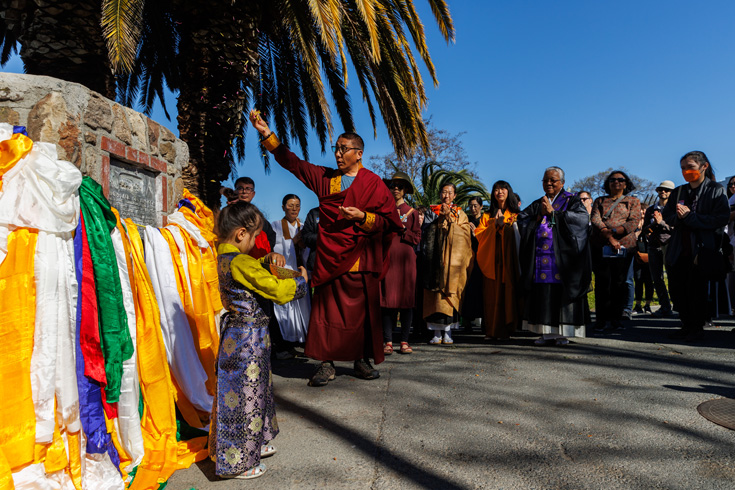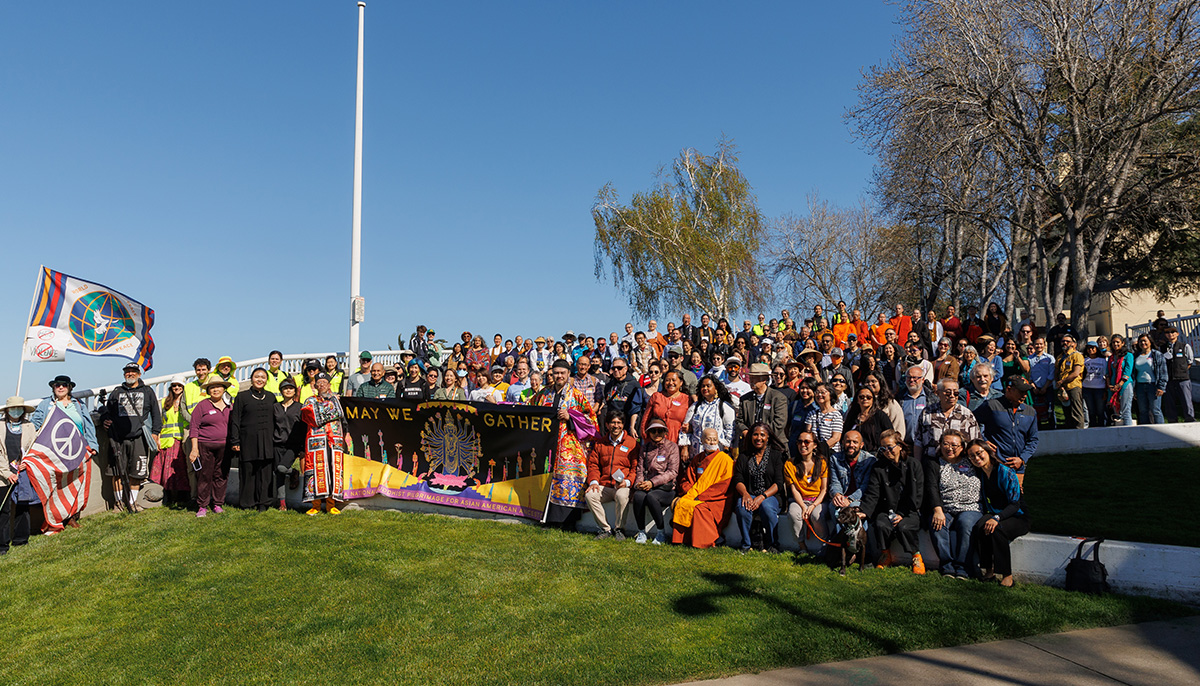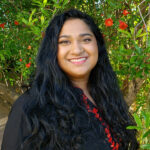A profound and historic gathering came about on Saturday, March 16, 2024, in Antioch, California, as Buddhist communities from throughout the nation convened for “Could We Collect: A Nationwide Buddhist Pilgrimage for Asian American Ancestors.” Conceived by co-organizers Dr. Funie Hsu, Chenxing Han, and Rev. Dr. Duncan Ryuken Williams in response to rising anti-Asian violence and vandalism of Asian American Buddhist temples in 2020 and 2021, Could We Collect “affords a chance for Asian American and different Buddhist communities all through the USA to come back collectively in mourning, mending, and renewal.”
The first Could We Collect occasion in Could 2021 commemorated the 49-day anniversary of the Atlanta, Georgia spa shootings in addition to anti-Asian violence all through U.S. historical past. The Could We Collect collective held different memorials on the 100-day and annual anniversaries, in response to Buddhist memorial ritual schedules.
Saturday’s ceremony and pilgrimage, which marked the third anniversary of the Atlanta shootings, was held in Antioch, California, roughly 40 miles northeast of San Francisco. In 2021, Antioch grew to become the primary U.S. metropolis to make a proper acknowledgement and apology for its historical past of anti-Asian discrimination and violence.


Co-organizer Funie Hsu linked the Atlanta shootings and the 1876 destruction of Antioch’s Chinatown: “We’re right here as a result of the scapegoating of six Chinese language girls that incited the burning of Antioch’s Chinatown highlights a parallel to the six girls of Asian descent who had been blamed and killed within the Atlanta-area spa shootings. This shared connection between these two incidents emphasizes the continued legacy of anti-Asian and gender-based violence. It additionally underscores a context of Christian dominance that has formed the event of America’s racial karma, and notably the stereotyping of Asian immigrants as international heathens.”
“Collectively, our voices are a strong reminder that we’re not alone, in struggling and in therapeutic.”
The occasion included Buddhist rituals and dharma talks representing a number of traditions and a peace stroll circumambulating Antioch’s former Chinatown, made up of two sq. metropolis blocks alongside the waterfront. In the course of the peace stroll, there was a Daoist memorial ritual and an providing of Tibetan blessing scarves at a monument marking the “Birthplace of Antioch,” adopted by a neighborhood reception.
Katie, a volunteer at occasion, was moved seeing the multitude of peoples, views, tales, and areas the occasion included, particularly as a toddler of Chinese language immigrants from Hong Kong. They defined the significance of ceremony in enduring grief, and the way occasions like this assist us “acknowledge the connections that we now have to at least one one other and to recollect, acknowledge, fortify, and nourish these connections.”
The 90-minute ceremony on the El Campanil Theatre featured Buddhist leaders representing Chinese language, Indian, Japanese, Khmer, Korean, Lao, Sri Lankan, Taiwanese, Thai, Tibetan, and Vietnamese Buddhist traditions, chanting and conducting rituals in a number of languages. Buddhist girls leaders gave dharma talks on loving kindness, non secular kinship, the elegant attitudes, interconnection, caste fairness, compassion and collective therapeutic, and paths to enlightenment.


The stage held an altar with a statue of Guanyin, her many arms holding Buddhist ritual objects. Chenxing Han defined that in gathering earlier than Guanyin, “the all-seeing, all-hearing bodhisattva of mercy central to the spiritual lives of many early Chinese language immigrants,” individuals may “construct our resilience as a sangha and domesticate fierce compassion and non secular friendship.”
The altar additionally held 4 memorial tablets with the names of Asian American Buddhists killed as a consequence of anti-Asian violence: Yong Ae Yue, Vicha Ratanapakdee, Yik Oi Huang, and Sia Bun Ning. A fifth pill stood for “all individuals who have misplaced their lives by means of racial and spiritual animus.”
In the course of the ceremony, a kintsugi lotus from the 2021 Could We Collect ceremony was supplied to the altar. Kintsugi is the Japanese artwork of repairing damaged pottery by means of gilding. In the course of the 2021 ceremony, Buddhist leaders gilded the cracks on this lotus, in order that cracks had been nonetheless seen however made stunning.


The indoor ceremony concluded with Buddhist leaders and attendees every providing a single flower to Guayin. Taiko drummers carried out on the entrance of the theatre as individuals made their means open air for the strolling procession. The procession first stopped in Waldie Plaza, the place in 2021, Antioch Mayor Lamar Thorpe issued the historic formal apology. Mayor Professional-Tem of Antioch, Monica Wilson, learn the Antioch Metropolis Council decision apologizing “to early Chinese language and their descendants for acts of basic injustice, in search of forgiveness and committing to rectification of previous misdeeds.”
Procession leaders and the household of late Angelo Quinto supplied flowers, candles, and meals to the altar in a Daoist memorial ceremony honoring all who’ve misplaced their lives to racial and spiritual violence. The Quinto household helped cross police reform legal guidelines in California, together with the 2021 Meeting Invoice 490, “Angelo’s Legislation.”
When the pilgrimage procession arrived on the Birthplace of Antioch marker, every participant draped Tibetan blessing scarves, or khatas, over it. Rev. Dr. Duncan Ryuken Williams defined how the various coloured scarves represented the various sorts of those that constructed cities like Antioch. The totally different colours of sunshine shine collectively, with out canceling one another out, creating a ravishing Pure Land.


In the course of the neighborhood reception, Khenpo Paljor Gyatso gifted individuals with khata scarves. This implies individuals most certainly obtained a shawl that another person supplied, displaying how we’re all interlinked. Utilizing the jeweled internet of Indra as a metaphor, Rev. Dr. Duncan Ryuken Williams defined: “We’re all like particular person jewels on this bigger internet that extends infinitely in each route. Like lower jewels, we’re like a mirror, in order that after we take a look at one individual, we see the reflection of all people else. That’s the Buddha’s instructing at its core: we’re interlinked. Our freedom is interlinked. After we come to study extra about one another, we will work anyplace in that internet.”
The occasion additionally featured a profound, however unplanned, second. As Khenpo Paljor Gyatso carried out the closing ritual, a practice blared within the distance. As quickly as he completed chanting, the practice got here barreling by means of. For over two minutes, its rumbling coursed by means of our our bodies. I felt chills, tears stinging my eyes, as I considered the Chinese language immigrants who constructed these railroads, the Japanese People who constructed up California’s agriculture trade but had been taken to internment camps on tracks like these, and the numerous others who constructed our nation. This was our ancestors making themselves recognized. Or, within the phrases of Could We Collect, the practice can remind us that, “Collectively, our voices are a strong reminder that we’re not alone, in struggling and in therapeutic.”
Go to the Lion’s Roar Instagram web page to see extra images and video of the occasion and watch a replay of the “Could We Collect” ceremony under:



